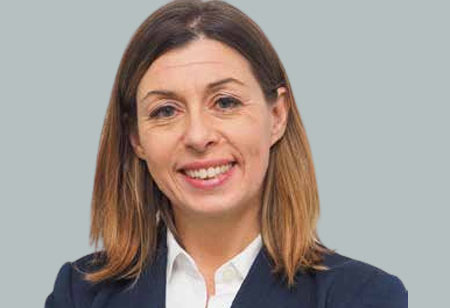

Thank you for Subscribing to Hospitality Business Review Weekly Brief

Nicola Ping is a seasoned travel industry leader with extensive expertise in airline distribution and travel management. She began her career in telecommunications before joining British Airways (BA) in 2008. In BA, she gained invaluable experience in revenue management and worked closely with the International Air Transport Association (IATA) to develop its New Distribution Capability (NDC). At Flight Centre, she oversees global air content access and distribution for FCM and chairs the IATA NDC Advisory Forum, driving progress and ensuring the company’s alignment with evolving market needs.
In an interview with Hospitality Business Review Europe, Nicola Ping offers valuable insights into the latest trends shaping the travel management landscape and provides practical advice for marketers and strategists in the industry.
Given the extensive experience you have gathered over the years as a leader working in culturally diverse markets, how do you adapt your strategies to accommodate different cultural nuances?
In my global role at Flight Centre, I work with diverse groups of people across multiple cultures and regions. The key to navigating this diversity is listening, understanding, and recognizing cultural differences, appreciating varying communication styles, and embracing different perspectives.
Equally important is recognizing the varying growth rates across regions. The airline industry's transition to new technologies has not been uniform globally. While Europe has led the way, Asia and the Americas have followed, and many regions, such as much of Africa, are still in the early stages or yet to begin. Airlines in different areas experience varying levels of exposure to new technologies, underscoring the need for a tailored approach.
“We have established AI Centers of Excellence to implement AI-driven solutions. They simplify the shopping and booking process with seamless, intuitive and efficient solutions, positioning us at the forefront of this industry evolution.”
Rather than enforcing a single global strategy, it's crucial to understand each organization's starting point and work collaboratively at their level. Success lies in taking the time to assess these differences and building relationships based on mutual understanding, allowing for an inclusive and effective transition.
What emerging trends and technologies in the travel industry do you leverage to improve the efficiency and effectiveness of travel distribution processes?
The air content and distribution sector I oversee is undergoing a significant transformation, evolving from outdated systems—some over 60 years old—to advanced, cutting-edge technologies. AI is reshaping customer expectations, particularly in the travel industry, which is driving us to automate repetitive tasks and allow human resources to focus on more complex challenges. At Flight Centre, we have established AI Centers of Excellence to implement AI-driven solutions. They simplify the shopping and booking process with seamless, intuitive and efficient solutions, positioning us at the forefront of this industry evolution.
The modernization of legacy systems also aims to deliver consumer-grade experiences within corporate travel—a sector historically slower to adopt such changes due to corporate policies and expense approval processes. It struggles with integrating technologies such as real-time messaging, mobile-first platforms and streamlined booking experiences. The upcoming year will be pivotal as corporate travel works to tackle these challenges and close the technology gap, offering business travelers a more efficient and user-friendly experience.
Corporate travel also faces the challenge of integrating payment systems and aligning corporate policies with varying levels of information travelers are willing to share. Pilots for digital ID in corporate travel are scheduled for 2025, marking a significant step toward streamlining processes while addressing privacy and regulatory concerns.
Digital ID is set to revolutionize travel, in general, by enabling passengers to book, navigate airports and board flights without physical documents. Passport-free boarding and iris recognition are already used at select airports, with further acceleration expected in the coming years. These transformations will continue to play a critical role in shaping the future of the travel industry.
What strategies do you employ to retain and develop top talent within your team, ensuring their long-term success and growth?
At Flight Centre, the ‘Brightness of Future’ program is a key part of our culture. It facilitates regular, personalized conversations between employees and their managers, mentors or senior leaders. These discussions focus on career growth, personal development and future aspirations and are tailored to individual goals such as career progression or expanding current roles.
Flight Centre’s global presence and diverse portfolio provide exceptional growth opportunities. Team members can explore roles across regions or transition between corporate and leisure brands, gaining exposure to different markets. Employees also value collaborating with external partners, including airlines, hotel chains, rail companies and technology providers, enhancing their professional skills.
This focus on development and external opportunities has fostered strong employee retention and satisfaction. Now operating at or above pre-pandemic staff numbers, Flight Centre continues to attract top talent, providing a supportive environment where individuals thrive and contribute to the success of our team and the broader travel industry.
What advice would you offer to your peers in the industry for achieving success or strategies they should implement?
My key advice is to immerse yourself in the details—get your hands dirty. Early in my career, I worked in revenue management, which gave me insight into operations. Later, in distribution, I dove into APIs, learning their functions and requirements for seamless integration. This deep understanding has proven invaluable.
For example, during a recent call with a major airline, my technical knowledge allowed me to understand the conversation and communicate the implications effectively.
If you are starting out, find an area you are passionate about and dive in. Becoming an expert through hands-on experience builds both knowledge and credibility, which will serve you well in your career.
I agree We use cookies on this website to enhance your user experience. By clicking any link on this page you are giving your consent for us to set cookies. More info